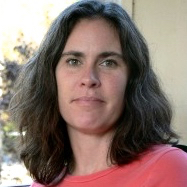Rascals case in brief
In the beginning, in 1989, more than 90 children at the Little Rascals Day Care Center in Edenton, North Carolina, accused a total of 20 adults with 429 instances of sexual abuse over a three-year period. It may have all begun with one parent’s complaint about punishment given her child.
Among the alleged perpetrators: the sheriff and mayor. But prosecutors would charge only Robin Byrum, Darlene Harris, Elizabeth “Betsy” Kelly, Robert “Bob” Kelly, Willard Scott Privott, Shelley Stone and Dawn Wilson – the Edenton 7.
Along with sodomy and beatings, allegations included a baby killed with a handgun, a child being hung upside down from a tree and being set on fire and countless other fantastic incidents involving spaceships, hot air balloons, pirate ships and trained sharks.
By the time prosecutors dropped the last charges in 1997, Little Rascals had become North Carolina’s longest and most costly criminal trial. Prosecutors kept defendants jailed in hopes at least one would turn against their supposed co-conspirators. Remarkably, none did. Another shameful record: Five defendants had to wait longer to face their accusers in court than anyone else in North Carolina history.
Between 1991 and 1997, Ofra Bikel produced three extraordinary episodes on the Little Rascals case for the PBS series “Frontline.” Although “Innocence Lost” did not deter prosecutors, it exposed their tactics and fostered nationwide skepticism and dismay.
With each passing year, the absurdity of the Little Rascals charges has become more obvious. But no admission of error has ever come from prosecutors, police, interviewers or parents. This site is devoted to the issues raised by this case.
On Facebook
Click for earlier Facebook posts archived on this site
Click to go to
Today’s random selection from the Little Rascals Day Care archives….
Click for earlier Facebook posts archived on this site
Click to go to
Today’s random selection from the Little Rascals Day Care archives….
Court finds Hart’s ploy ‘grossly improper’
March 16, 2012
“The appeals court called a maneuver (in Dawn Wilson’s trial) by the chief special prosecutor, Bill Hart, ‘grossly improper.’
“The judges found that Hart had tried to impugn the reputation of Wilson by placing in the courtroom audience two people whose presence was likely to intimidate Wilson.
“Hart never called the pair as witnesses, but… by his actions had implied to Wilson that he intended to use the two people against her in a way that might result in self-incrimination.”
– From the (Norfolk) Virginian-Pilot, May 3, 1995
In 1995 the N.C. Court of Appeals overturned her conviction. And then of course the prosecutors rushed to apologize to Dawn Wilson for their disgraceful vilification.
The chilling body count of ‘personality-driven’ prosecutors

kristincollinswriting.com
Kristin Collins
July 11, 2016
“This week Harvard Law School’s Fair Punishment Project issued a report detailing the legacies of five of the nation’s deadliest prosecutors, and (Joe Freeman) Britt was among them. The report highlights what it calls ‘personality-driven capital sentencing,’ which leads overzealous prosecutors with a flair for courtroom theatrics and a desire for personal fame to pursue death sentences at disproportionate rates….
“This personality-driven system means that a death sentence often says less about the severity of the defendant’s crime, than it does about the prosecutor’s enthusiasm and courtroom skills. Personality-driven prosecutions can also lead to wrongful convictions, when prosecutors making winning cases a higher priority than seeking justice….
“Britt often cut corners to win. Appellate courts found that Britt committed misconduct in 14 of his capital cases, the new report shows. His offenses included hiding evidence that might have proven defendants innocent and making inflammatory and improper statements to jurors….
“When they were exonerated by incontrovertible DNA evidence, Britt did not even have the heart to admit his mistake. Instead, he continued to loudly proclaim their guilt….”
– From “NC ‘deadliest prosecutor’ valued winning over justice, new report shows” by Kristin Collins at NC Coalition for Alternatives to the Death Penalty (June 30)
I shudder to speculate what might have happened in Edenton had North Carolina sanctioned capital punishment for child sex abuse. The Little Rascals prosecutors, most strikingly Nancy Lamb, bore many of the “personality-driven” characteristics seen in a Joe Freeman Britt:
- “A flair for courtroom theatrics and a desire for personal fame”? Check.
- “Hiding evidence that might have proven defendants innocent”? Check.
- “Inflammatory and improper statements to jurors”? Check.
- “Continued to loudly proclaim their guilt”? Check…..
![]()
Former justice calls for investigation of state bar

csedlaw.com
Robert F. Orr
Feb. 8, 2016
“Bob Orr, a former North Carolina Supreme Court justice, says it’s time for a comprehensive outside review of the state agency that oversees lawyers.
“Orr… is part of a committee looking at legal professionalism as part of Chief Justice Mark Martin’s recently launched review of the state justice system….
“The call for evaluation comes amid questions about the bar’s aggressive prosecution of three defense attorneys who have worked on Racial Justice Act (text cache) and innocence inquiry cases….”
– From “Former NC Supreme Court justice calls for review of state bar” by Anne Blythe in the News & Observer (Feb. 6) (text cache)
Right on, Justice Orr. And thanks to the N&O for its continuing attention to the flagrant self-dealing of the Prosecutors Club, most recently this account (text cache) by Joseph Neff contrasting the bar’s two sets of ethical standards:
“For most of 2015, the North Carolina State Bar vigorously and publicly pressed ethics charges against two anti-death penalty lawyers for what were eventually judged to be unimportant inaccuracies in two sworn affidavits.
“During the same time, the bar privately dismissed complaints that three prominent prosecutors – one running for attorney general, another now a Superior Court judge – used a false affidavit in a racially divisive case that has roiled Winston-Salem for more than a decade….”
I’ve even seen it suggested that the situation demands a separate panel specializing in prosecutorial misconduct (text cache).
![]()
Moral panic drove men from day-care centers
Dec. 12, 2012
“In 1983, (the year of the first McMartin Preschool allegations), only 5 percent of day care providers were male. During the nine years of the moral panic, an alarming number of those male providers were accused of that new and horrific sex crime, satanic ritual abuse….
“Males left the profession in droves, seeking the comparative safety of male sex-role stereotyped employment. Day care was refeminized. Once again, primary responsibility for the care and socialization of young children was placed on the shoulders of low-paid women.”
– From “The Devil Goes to Day Care: McMartin and the Making of a Moral Panic” by Mary De Young in the Journal of American Culture (April 1, 1997)











0 CommentsComment on Facebook